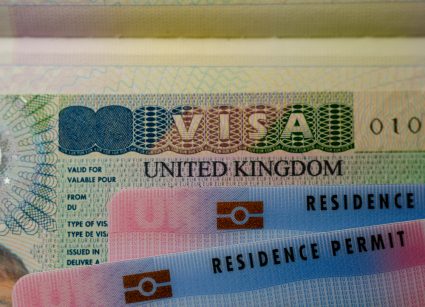Brexit, the UK’s decision to leave the European Union, has brought about significant changes in various aspects of the country. One of the areas affected by this decision is education, particularly in the context of international students coming to the UK.
The UK has traditionally been a popular destination for students from all over the world, and these students’ contributions to the country’s economy and culture are significant. From student accommodation in the UK, tuition fees, visas, etc., this article will provide information on Brexit’s impact on international students and offer advice to prospective students who wish to study in the UK.

Changes in tuition fees for EU students after Brexit
One of the most significant changes resulting from Brexit is the increase in tuition fees for EU students. Previously, students from the EU countries were charged the same tuition fees as UK students. However, with Brexit, EU students are now classified as international students and are subject to higher fees. Exceptions to this policy include EU students who have already started their courses before Brexit and those eligible for certain scholarships or grants.
The fee increase is due to the UK’s departure from the EU and the accompanying loss of access to certain EU funding and programs. According to a report, the average tuition fee for EU students in the UK has now risen from £9,000 to £26,000 per year, depending on the course and institution. This is significantly higher than the fees paid by UK and EU students who started their courses before Brexit.
Alternative funding options such as scholarships, bursaries, and loans are available to EU students. For example, the UK government has announced the Turing Scheme, which will provide funding for UK students to study abroad and international students to study in the UK. The Turing scheme aims to increase the opportunities for students to study overseas and to promote the UK as an attractive destination for international students.

Brexit’s impact on UK student visas
Brexit has also resulted in changes to immigration policies concerning international students. EU students must now obtain a student visa before studying in the UK. The new visa system, the Student Route, now applies to both EU and non-EU students.
The visa application process has also changed, with additional requirements such as proof of English language proficiency and sufficient funds to cover living expenses in the UK. The minimum amount required for living expenses is currently £1,334 per month for students studying in London and £1,023 per month for students studying outside London.
Students may also be required to provide biometric information, such as fingerprints and photographs, as part of the visa application process. They are also advised to start the visa application process as early as possible to avoid delays.

European students studying in the UK after Brexit
Brexit has had a significant impact on European students studying in the UK. While EU students can still study in the UK, they are now subject to different tuition fees and visa requirements than before. Non-European students, on the other hand, are not significantly affected by the changes resulting from Brexit. The UK’s departure from the EU has also affected student mobility in Europe, with UK students facing new challenges (additional costs and administrative burdens) when studying abroad.
According to the reports, the number of EU students studying in the UK has decreased since Brexit, with a 43% decrease in the number of EU students starting courses in the UK in 2020 compared to 2016. However, it is essential to point out that the UK remains a popular destination for European students, and many still choose to study in the country despite the changes resulting from Brexit.
The UK government has announced plans to attract more international students, including EU students, by offering new scholarships, simplifying the visa application process, and promoting the UK as a welcoming and attractive destination for students.

Brexit’s effect on international students
Brexit’s impact on international students in the UK extends beyond changes in tuition fees and visa requirements. The diversity and quality of education in the UK may be affected, as fewer international students may choose to study in the country due to the new policies. The UK has traditionally been a popular destination for international students, with over 450,000 international students studying in the country in 2020.
The contributions of these students to the UK’s economy, culture, and research are significant. Also, Brexit may affect the UK’s global competitiveness, as fewer international students may lead to a decrease in the country’s international influence. But the UK is still a popular destination for international students despite Brexit’s impact on EU student visas.
Immigration policies
Brexit has also had an impact on immigration policies in the UK, which may affect international students. The UK government has introduced a new points-based immigration system, which applies to all non-UK nationals, including international students. The new system prioritises highly skilled workers and students who can contribute to the UK economy and sets a minimum salary requirement for work visas.
The new immigration policies may make it more difficult for international students to find employment in the UK after graduation, as employers may be hesitant to sponsor work visas due to the cost. This could affect the career prospects of international students who choose to study in the UK and may make the country a less attractive destination for those seeking employment opportunities after graduation.

Conclusion
In conclusion, Brexit has had a significant impact on international students coming to the UK. The changes in tuition fees, visa requirements, and immigration policies resulting from Brexit may affect the number of international students who decide to study in the UK.
However, the UK remains an attractive destination for international students, and the country continues to offer high-quality education and diverse cultural experiences. Prospective international students are advised to research the new policies carefully and start the application process early to avoid any delays.



